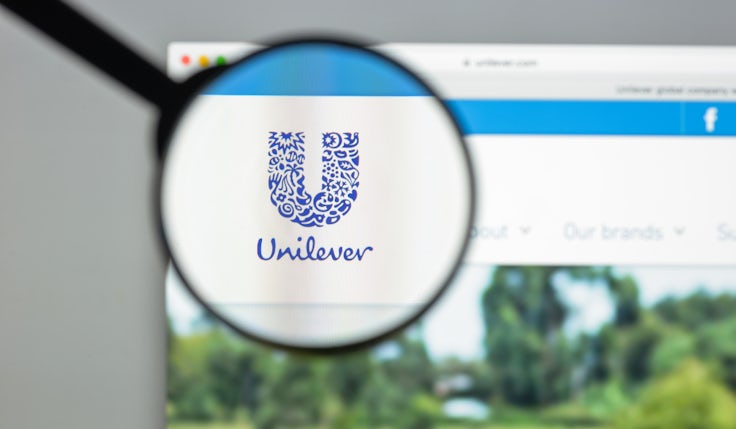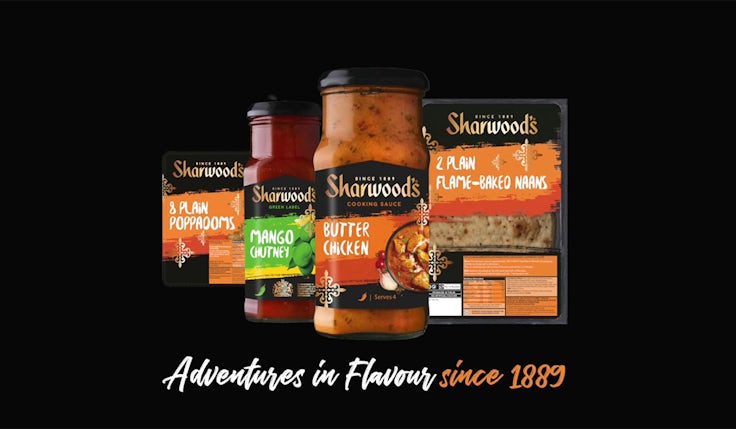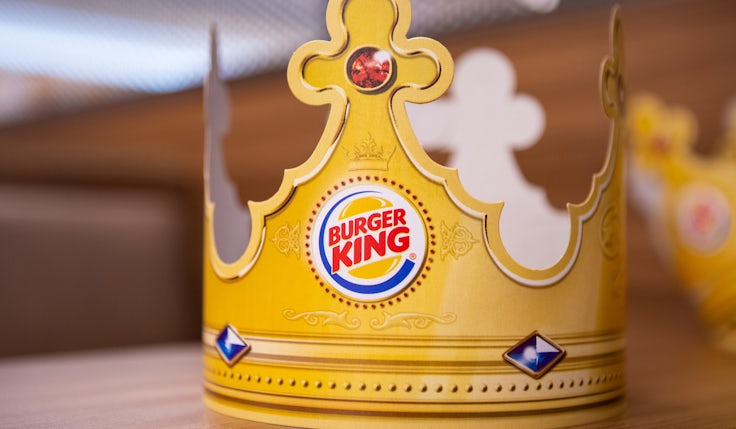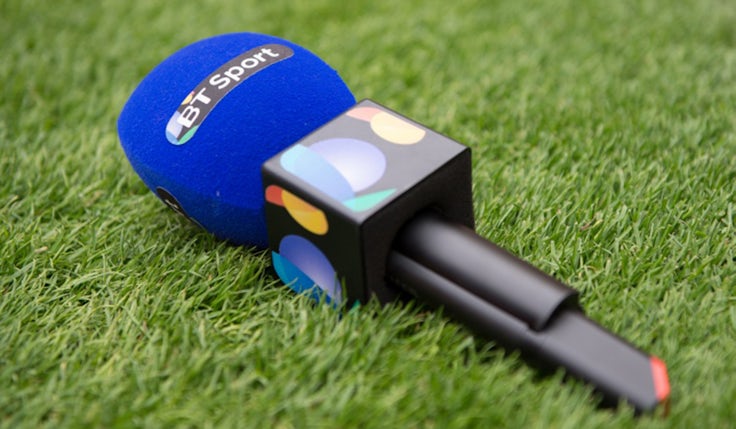Nike, Ariel, British American Tobacco: Everything that matters this morning
Good morning and welcome to Marketing Week’s round-up of the news that matters in the marketing world today.
Nike anchors executive paydays to diversity targets
Nike has tied executive compensation to diversity, sustainability and equality targets as the company laid out a five-year plan to improve brand equity.
The company will invest $125m over the next five years to “level the playing field”, as it aims to achieve 50% female representation in corporate teams, 45% of women in vice president and above positions, and 35% of workforce to represent ethnic backgrounds.
The brand has hired more women to its workforce over the past five years, with a rate of 49.5% rising from 48% in 2015. Vice president level employees from ethnic minority backgrounds grew from 15.9% in 2015 to 29% last year. Over half (55%) of 310 intern hires were women, with 49% from ethnic backgrounds.
Nike CEO John Donahoe says: “Our goal is, and always will be, for Nike’s people and purpose to come together for good. At Nike, we’ll never stop striving for better. Our purpose will always guide us, and our values will always push us forward – toward that better future we believe in.”
The sportswear brand did not reveal details on executive compensations if they hit goals by 2025.
Ariel encourages people to cut carbon footprint
Ariel is launching a campaign to encourage Europeans to wash clothes at lower temperatures in a bid to reduce the carbon footprint of laundering clothes.
For the ‘Every Degree Makes a Difference’ campaign the brand tapped National Geographic Creative Works, to create short films and emotive images to illustrate the impact of global warming on the arctic regions.
The Procter & Gamble brand is targeting consumers to reduce their wash loads by five degrees on average by 2025. The laundry detergent brand says 60% of laundry’s carbon waste stems from the temperature washing machines are set to.
The campaign is an expansion of Ariel’s 2030 Brand Ambition. The company will also establish a sustainable supply chain by sourcing alternative detergent ingredients to replace those with high CO2 potential.
“Serving 5 billion people gives our brands the unique opportunity to promote conversations, influence attitudes and change behaviour,” says P&G’s chief sustainability officer Virginie Helias.
British American Tobacco acquires majority stake in cannabis firm
British American Tobacco (BAT) is preparing to buy a 20% stake in Canada-based cannabis producer OrganiGram for £126m, as the company pushes to diversify its business.
Both firms will develop new oral and vapour-based products for delivery, and commercialise products developed under their own brands.
The acquisition will give the tobacco company access to research and development technologies, product innovation and cannabis insight.
Alcohol and tobacco brands have made huge investments into the growing sector as cannabis is seen as more natural and less harmful than cigarettes.
BAT will become OrganiGram’s largest shareholder and is able to make two appointments to its board of directors.
“This move takes us into a new space and we are not ruling out any product innovation,” says BAT director of scientific research David O’Reilly.
READ MORE: BAT looks beyond tobacco to Canadian marijuana
Netflix mulls clampdown on account sharing
Netflix is currently scanning accounts to ensure users are authorised for viewing, in a move to stem account sharing and purge ineligible users.
Some subscribers reported seeing on-screen “If you don’t live with the owner of this account, you need your own account to keep watching.” The streaming giant is yet to roll this out across its base.
“This test is designed to help ensure that people using Netflix accounts are authorised to do so,” says a spokesperson to the BBC.
Netflix has seen increased competition in the streaming market. Prominent rival Disney+ gained 100 million subscribers just after 16 months of launching and expanded its content to appeal to mature audiences.
READ MORE: Netflix considers crackdown on password sharing
Freemans launches multimillion-pound campaign
Online department store Freemans is launching a multimillion-pound campaign to support the fact it is now selling the Star fashion range from designer Julien Macdonald.
The campaign will include TV, digital, print, social and PR. The TV ad shows Strictly Come Dancing finalist Janette Manrara and sees the tagline to ‘Feel More Fabulous This Spring’. It also features voiceover from Downtown Abbey’s Joanne Froggatt with the soundtrack of ‘Do It Like This’ from Daphne Willis.
The ad goes live tomorrow (13 March) during Ant & Dec’s ITV’s Saturday Night Takeaway.
There will be a social media call to action with the #BeMoreFree hashtag alluding to the lifting of lockdown restrictions while promoting the brand’s free delivery and returns on products.
The brand says it moved away from using an advertising agency and directly appointed external production specialists and creative directors to develop its campaign. It aims to reach 90 million people with the campaign which runs until 30 April.
Freemans Group Holdings (FGH) chief customer officer Richard Cristofoli says: “We are passionate about reclaiming Freemans’ fashion heritage and we know our customers love Julien. It’s another important step in establishing ourselves as the digital department store of choice and continuing the reinvigoration, a pace, of a well-loved great British brand.
Thursday,11 March
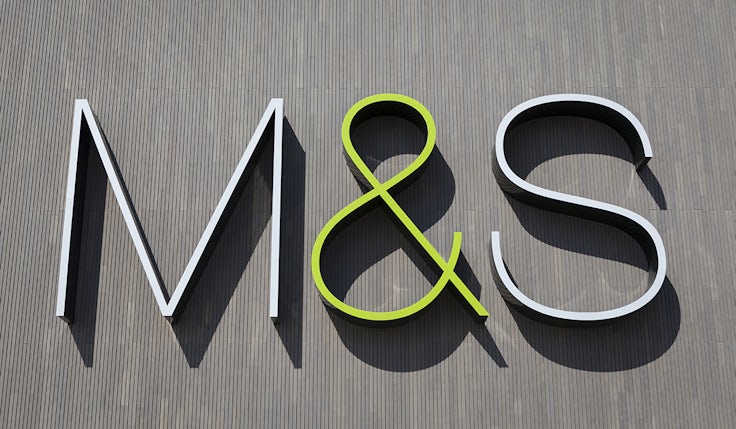 M&S to sell rival fashion brands for the first time
M&S to sell rival fashion brands for the first time
Marks & Spencer is to start online sales of clothes from other fashion brands, reports the BBC. The retailer’s own Classics and Limited ranges are being cut.
The retailer is to begin online sales of items from 11 rival brands, including Hobbs, Joules, Phase Eight, Sloggi and White Stuff. An M&S spokesman describes the move as part of plans to “turbocharge online growth”.
M&S posted its first loss last year, in 94 years as a public company, as stores were hit by pandemic restrictions. Online clothing and homewares sales were up by 34% in its latest interim results.
“The exciting mix will offer our 22 million customers products we already know they love and introduce them to some new brands,” says M&S director of brands Neil Harrison.
Recent initiatives by M&S have included the acquisition of the Jaeger fashion brand, and the development of new websites to serve overseas markets.
READ MORE: M&S to sell clothes from rival brands to boost online sales
Next takes stake in Reiss

Retailer Next has agreed terms to take a 25% stake in fashion brand Reiss, through the acquisition of shares from existing shareholders.
Upon completion, the deal, which is subject to regulatory approval, will see Next make an equity investment of £33m, and a debt investment of £10m, in Reiss. Next will gain an option to acquire a further 26% of Reiss shares at pre-agreed terms. That option lasts until July 2022.
Reiss, positioned as an affordable luxury apparel brand, was founded in 1971. Christos Angelides, a former director of Next, was appointed as CEO in 2017. He will remain in the role.
The Reiss website will be contracted to Next’s Total Platform – which other fashion brands use to run their websites – to provide online operations, warehousing and distribution. It is intended that the Next infrastructure will provide a launchpad for growth plans at Reiss.
“Reiss is an outstanding brand with enormous potential and a first class management team,” says Next chief executive Simon Wolfson. “We are excited to see what can be achieved through the combination of Reiss’s exceptional product, marketing and brand skills with Next’s Total Platform infrastructure.
“I believe the partnership with Next will be transformational for Reiss’s operational effectiveness,” says Angelides.
Klarna boss admits mistakes in advertising
The co-founder and chief executive of buy now, pay later brand Klarna says that mistakes have been made in how the brand was advertised.
Speaking to the BBC, Sebastian Siemiatowski said “We’ve identified that there’s been mistakes done. We have not always followed our own advertising principals. The increased interest in these products are something we obviously take to heart and have made that extra effort.”
Siemiatowski said he was upset when he heard Klarna compared to brands such as pay day loan brand Wonga. “I’m surprised to see that there’s not a more positive response,” he said.
Klarna has seen 100% year-on-year growth in the UK, with 5 million people using buy now, pay later services over the past year. The Financial Conduct Authority is now to be given powers to regulate the sector.
READ MORE: Klarna boss: ‘I’m surprised by buy now, pay later concerns’
Homebase partners with Dick and Angel to make homes the hero
 Homebase has launched a brand partnership with TV personalities Dick and Angel Strawbridge, the hosts of Channel 4 show Escape to the Chateau, to emphasise the fundamental but evolving role that homes play in our lives.
Homebase has launched a brand partnership with TV personalities Dick and Angel Strawbridge, the hosts of Channel 4 show Escape to the Chateau, to emphasise the fundamental but evolving role that homes play in our lives.
The partnership will launch with an eight-part content series – Dick & Angel Give it a Go – where the couple help and inspire Homebase customers to make improvements to their homes. Projects in the series, developed by creative agency Atomic, include upcycling a chair, building a raised bed in a garden, and organising a home office.
“We know how important it is that our customers love the homes they live in and we’re proud to be the one-stop-shop for all the products and inspiration they need to tackle their home and garden projects,” says Homebase head of marketing Lisa Tickle.
Lion Cereal seeks King of the Jingle
Nestlé-owned Lion Cereal is staging a pan-European hunt for the ‘King of the Jingle’ with its latest campaign. The brand is seeking to inspire and invigorate audiences by challenging them to create a tune suitable for the distinctive taste of the product.
Nine artists have already recorded jingles, in a diverse range of musical styles, using the signature lyric: “It’s chocolate, caramel, crunchy. It’s breakfast cereal Lion Style.” The jingles will feature on TV, radio and social media ads to encourage more consumers to share their efforts via social media. The best entrant will be named King of the Jingle.
“We’re always looking at new ways to inspire, to entertain our consumers and show off our bold personality,” says Bérengère Chalvon Demersay of Cereal Partners Worldwide, the global joint venture between Nestlé and General Mills.
Wednesday, 10 March
Disney+ reaches 100 million subscribers worldwide
Just 16 months after launching, Disney+ now boasts 100 million subscribers across the globe, according to Disney CEO Bob Chapek.
Chapek shared the news during yesterday’s annual shareholders meeting. In November of last year, Disney had to reforecast its subscriber goal of 60 million to 90 million by 2024 after a huge surge in numbers, prompted in part by lockdown and the success of original series like The Mandalorian.
The company now expects to have 230 million to 240 million subscribers within the same timeframe.
“The enormous success of Disney+ has inspired us to be even more ambitious, and to significantly increase our investment in the development of high-quality content,” Chapek said.
“In fact, we set a target of 100-plus new titles per year, and this includes Disney Animation, Disney Live Action, Marvel, Star Wars, and National Geographic. Our direct-to-consumer business is the Company’s top priority, and our robust pipeline of content will continue to fuel its growth.”
READ MORE: Disney Plus Tops 100 Million Subscribers Worldwide
Evian global platform Drink True springs to life with two shorts
Evian’s ‘Drink True’ global campaign has been created to celebrate the brand’s “authenticity, transparency and honesty” and its ongoing ambitions to become fully circular by 2025.
The result of a partnership with creative agency W+K Amsterdam, the campaign comes in two parts, with a documentary-style film featuring the singer Dua Lipa and a second short, ‘Drink Water’, providing background and context for the brand’s natural filtration, from the French Alps to the source of Evian-les-Bains.
The 90-second Dua Lipa film sees the pop star sound-checking before a gig, singing an a cappella version of her hit single ‘Levitating’. The 60-second Drink Water slot is narrated by a teenage outdoor enthusiast.
The two shorts and accompanying assets will appear across television, digital, social, OOH and POS.
“We owe everything to nature, so it’s important to be honest and transparent about how we continue to deliver our natural mineral water in a more sustainable way and Drink True illustrates this perfectly,” says Evian’s global vice-president of marketing Shweta Harit.
“Bringing Dua Lipa onboard is the perfect match for showcasing our goals of empowering, liberating and greatly improving both people and the planet.”
Adidas bullish over sales, despite Reebok hit
Sportswear giant Adidas posted a fourth-quarter sales increase of 1% to £6.4bn, while operating profits slipped to £262m, both ahead of average analyst forecasts.
The German brand said that it now expects to see a significant sales increase, with 95% of its stores reopening across the globe after lockdown, potentially hitting 30% in China, the rest of Asia and South America.
However, it also expects to lose a further £290m after setting up Reebok as a standalone company, with plans still under discussion to sell off the underperforming British-born brand.
READ MORE: Adidas expects strong rebound, takes Reebok hit
La Roche-Posay TV campaign tackles skin issues
Skincare brand La Roche-Posay’s first ever television campaign is looking to raise awareness about the impact of skin issues around the globe.
With 1.9 billion people around the world are currently fighting skin conditions which dramatically alter the quality of their daily lives, the #skinismorethanskin hashtag will also underscore La Roche-Posay’s ambition to provide accessible dermatologist-recommended skin solutions to all.
“Whether big or small, skin issues are a matter of public health today,” explains La Roche-Posay global president Laetitia Toupet. “We tend to underestimate the impact they can have on people’s lives.
“We’ve always partnered with dermatologists and made science move forward to develop the best dermatological skincare solutions to change people’s lives. Today we’re going a step further with a brand new campaign to raise awareness and show the life-changing power of dermatology.”
UKTV invests in Time-To-Find startup
Broadcaster UKTV has invested in online startup Time-To-Find, using its UKTV Ventures investment fund.
The startup is a watch comparison site that directs consumers to retailers who have the timepiece they want in stock.
The company completed a successful round of funding in 2020 and the partnership will see Time-To-Find launch its first television advertising campaign across UKTV’s seven channels (Alibi, Dave, Drama, Eden, Gold, W and Yesterday), giving it access to over 30 million viewers. In return, UKTV will gain an equity stake in the business.
“Working with startups is my passion and I am thrilled that UKTV Ventures is supporting such a high-calibre management team with a proven track record in the luxury watch market,” says UKTV Ventures director Sheena Amin.
“The team at Time-To-Find have ambitious plans to grow and scale their business and I’m looking forward to partnering with them and raising awareness of their global marketplace platform via the unique brand building power of TV.”
Tuesday, 9 March
Unilever bans ‘normal’ from beauty brands
Unilever will stop using the word ‘normal’ to describe beauty and personal care products as it looks to tackle harmful stereotypes used in marketing.
The FMCG giant, which makes brands including Dove, Lifebuoy and Lynx, made the decision after research shows using the word ‘normal’ to describe hair or skin makes most people feel excluded.
The study of 10,000 people across nine countries finds seven in 10 people believe using ‘normal’ on packaging has a negative impact, which rises to eight in 10 among those aged 18 to 35.
“We know that removing ‘normal’ from our products and packaging will not fix the problem alone, but it is an important step forward,” says Sunny Jain, Unilever’s president beauty and personal care.
“With 1 billion people using our beauty and personal care products every day, and even more seeing our advertising, our brands have the power to make a real difference to people’s lives. As part of this, we are committed to tackling harmful norms and stereotypes and shaping a broader, far more inclusive definition of beauty.”
The move to eliminate ‘normal’ from packaging forms part of Unilever’s new Positive Beauty strategy, through which it aims to “do more good, not just less harm”. It will impact innovation, product development, marketing and advertising.
As well as removing ‘normal’ from packaging and advertising, Unilever has banned the use of excessive digital editing to alter body shape, size, proportion or skin colour across its own advertising and that of the influencers it uses.
Unilever bans ‘normal’ from beauty products in inclusivity drive
M&S doubles online business overseas
Marks & Spencer has expanded its online business overseas, adding websites for an additional 46 markets, including Argentina, Fiji, Croatia and Uzbekistan to its portfolio.
The move means the retailer now has a digital presence in more than 100 countries, enabling millions of new shoppers to buy M&S clothing and homeware online.
The brand’s international director Paul Friston says expanding in this way allows it to “explore underlying demand without significant upfront investment”, meaning the strategy can be easily adapted in line with demand in each country.
M&S saw a 75% rise in ecommerce sales during its most recent half year results.
READ MORE: Marks & Spencer expands overseas
Some ‘healthy’ snacks found to be saltier than sea water
Snacks such as lentil curls and chickpea chips, which are billed as a healthy alternative to crisps have been found to contain more salt than the concentration of sea water.
The study by Action on Salt finds, for example, that one bag of Love Corn Habanero Chilli snacks contain more salt that three and a half bags of Walkers ready salted crisps.
Researchers at the group are calling for a restriction on the use of “misleading” nutrition claims on unhealthy foods.
On average, the alternative snacks tested are lower in fat, saturated fat and calories and higher in fibre to standard crisps and nuts, but 43% are also higher in salt, which can lead to high blood pressure and increase the risk of strokes and heart attacks.
Of the 119 snacks analysed, the saltiest product is Eat Real Hummus Chilli & Lemon flavoured chips, which contain more salt than two small bags of McDonald’s French fries.
The study also reveals that despite 55% of the products surveyed being high in fat, salt and/or sugar, the majority of products do not display the colour coded nutrition information. Instead, most products include on-pack nutrition claims, which are legal but Action for Salt suggests “mislead consumers by creating a distorted ‘health halo’ and discouraging shoppers from scrutinising the ingredients more thoroughly”.
Action on Salt campaign manager, Sonia Pombo, says: “This important survey has put a spotlight on the unnecessary amounts of salt in ‘healthy’ snacks, and the use of nutrition claims on HFSS foods need to be questioned. Instead of misleading their customers, companies should be doing all they can to help us all make more informed decisions, including using front of pack colour coded labels.”
Maltesers tackles taboo of maternal mental health in latest campaign
Maltesers has shifted its focus to mums’ mental health as part of its ongoing strategy to unite people through laughter.
The campaign is designed to show the ‘lighter’ and ‘darker’ sides of motherhood and has been inspired by real conversations with mothers.
It is based on research which shows one in 10 women experience mental health issues during pregnancy or within the first year of having a baby, yet seven in 10 women hide or underplay its severity.
Maltesers’ brand director Leah Dyckes says: “Be it our own experiences or the experiences of our friends, family or partners, we know that maternal mental health impacts so many women during and after pregnancy. However, it is rarely talked about and widely considered taboo.
“We’ve learnt to understand the power of representation over the years and are now bringing these learnings to a whole new issue in these ads, but this is only the start. Through our advertising, campaigns and partnerships, Maltesers aims to help women build resilience, by laughing together through the tough stuff.”
The campaign, created by AMV BBDO, follows Maltesers’ award-winning ‘Look on the Light Side of Disability’ campaign, which featured disabled people in everyday situations discussing awkward encounters and experiences.
As part of the campaign Maltesers has also extended its partnership with Comic Relief and over the next three years will be donating money to support projects including The Happy Mums Foundation and Smile Group, which both support women with maternal mental health issues.
Online grocery shopping now a ‘permanent fixture’ for many
The number of people shopping online for groceries has more than doubled over the past year, suggesting it has moved from “tipping point” to “sticking point”.
Online grocery sales reached 41% in the four weeks to 27 February, up from 18% for the same period in 2020, according to NielsenIQ.
British shoppers spent £1.5bn on groceries online last month, with the online share of grocery sales now reaching 17% – the highest ever share for online grocery sales in the UK and a 1% increase on the previous month.
Looking at specific retailers, Lidl has shown the strongest growth (21.2%) over the past 12 weeks, followed by Iceland, which increased by 17.5%. Morrisons is the fastest growing of the big four supermarkets, up 11.7%.
NielsenIQ’s UK head of retailer and business insight, Mike Watkins, says: “One year on since the pandemic began in the UK it’s evident that a lot has changed in terms of consumer shopping patterns. Online grocery has now become a permanent fixture for many UK shoppers – it is now past the ‘tipping point’ and is at the ‘sticking point’.
“Consumers no longer feel like they have to shop online, but do so because they prefer to, particularly now that many retailers have expanded fulfilment capacities. Even when we exit lockdown and start to return to some normality, we anticipate that online demand will continue to grow ahead of the market.”
ITV revenues take a hit from Covid
ITV’s revenues dropped 16% to £2.8bn for the year to 31 December 2020, impacted by the disruption caused by the pandemic, with adjusted group profits falling 21% to £573m.
Both figures are better than expected, however, driven by a strong end to Q4 ad tight cost controls, with the business now planning to invest further in digital transformation.
ITV Studio’s adjusted EBITA was down 43% to £152m, while adjusted EBITA for broadcast was down 9% to £421m.
ITV CEO Carolyn McCall says: “We are encouraged by the roadmap out of lockdown. We are seeing more positive trends in the advertising market in March and April and the majority of our programmes are now back in production. However, there remains uncertainty in all markets around the world with the potential risk of lockdowns, which if they materialise will affect revenues.
“We are committed to taking further cost out of the business while further investing to accelerate the delivery of our strategy and digital transformation. We have restructured the broadcast business to create the media and entertainment division to better respond to changing viewing habits.”
Monday, 8 March
Virgin sues over ‘spurious’ claims about brand value
Virgin Enterprises is suing a US railway company for $251m (£182m) after the operator called into question its brand value by dropping the Virgin name from its trains.
Brightline, which had a 20-year licensing deal allowing it to rebrand as Virgin Trains USA in exchange for royalties, is claiming Virgin is no longer “a brand of international high repute” due to the pandemic.
Countering these claims, Virgin says Brightline is reneging on the agreement signed in 2018 and describes the claims the brand has been damaged as “cynical and spurious”.
While suspended since March due to the pandemic, the Virgin Trains USA route did run between Miami and West Palm Beach in Florida, with plans to extend the line to Orlando to connect tourists visiting Disney World. Virgin says Brightline cannot scrap the contract until 2023 at the earliest and would still be subject to fees.
Virgin has been hit hard by the pandemic. In September, Virgin Atlantic slashed a further 1,150 jobs as part of a £1.2bn rescue plan, in addition to the more than 3,500 jobs it had already cut earlier last year. The airline described the first six months of the coronavirus crisis as “the most challenging in Virgin Atlantic’s history”. The Virgin Group has also been forced to delay the launch of its first cruise ship, while its gyms and hotels have remained closed.
READ MORE: Virgin sues partner over claims about its brand value
Direct Line targets ‘organisational transformation’ as policy sales weather Covid storm
Direct Line is pushing ahead with a focus on agility and wider “organisational transformation”, as the insurer saw sales of its own brand policies grow by 2.2% in the year to 31 December 2020.
Despite growth across the business, including in its home, commercial and Green Flag Rescue divisions, Direct Line’s operating profit dipped by 4.5% to £522.1m – due in large part to increased major weather costs of £43m.
In the year to 31 December, £106.6m was spent on marketing, down slightly from £113.9m in 2019. The company references the launch of Direct Line’s ‘We’re on it’ campaign in March as a notable highlight, designed to communicate the brand’s “unique propositions”.
The insurer also notes how consumers’ willingness to interact digitally with the group has been “transformed” by the pandemic and that digitalisation is at the heart of its ongoing tech transformation.
Over the past 12 months the company invested £93m in a range of measures to help customers, staff and local communities through the crisis. This includes the Direct Line brand’s ‘Mileage MoneyBack’ scheme to help customers not driving their cars due to lockdown restrictions save money and £7m donated to charity.
Direct Line says it has implemented agile ways of working across its trading, digital and technology functions, targeting increased pace of change and reduced costs. Given most of its workforce have switched to remote working, the insurer is looking at how to change the way its offices are used to support employees and believes this shift offers opportunities to recruit people “irrespective of geography”.
Furthermore, Direct Line says now it has achieved its 2020 climate targets it wants to go further by setting science-based targets, having already become a “100% carbon neutral business” by offsetting its emissions.
“I am proud of what the group has achieved during 2020,” says Direct Line Group CEO, Penny James.
“Once again, we have demonstrated financial resilience by delivering another good set of results, whilst supporting our customers, our people and local communities through the challenges of the pandemic. Despite the disruption and uncertainty that 2020 has brought, we have made real progress towards becoming a technology-driven business which can adapt quickly to the changing world around us and deliver more for our customers at speed.”
Deliveroo to offer riders £10,000 bonuses in stock market float
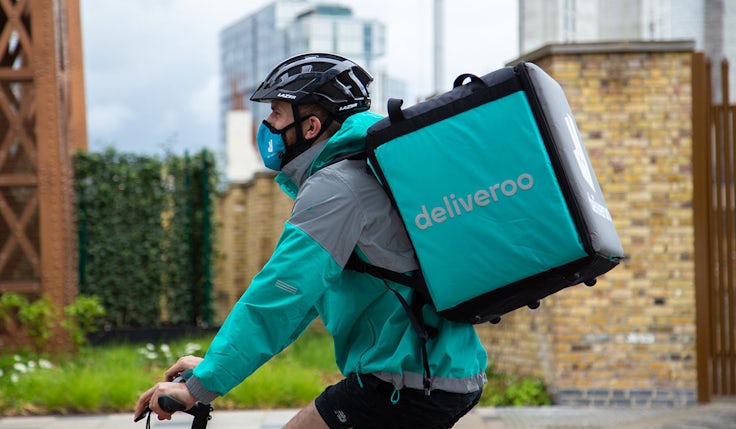 Deliveroo is poised to offer riders bonuses of up to £10,000 as the food delivery giant prepares to float on the London Stock Exchange.
Deliveroo is poised to offer riders bonuses of up to £10,000 as the food delivery giant prepares to float on the London Stock Exchange.
The riders across the company’s 12 markets who have delivered the most orders are in line to share the £16m fund. Employees who have worked for Deliveroo for at least a year will be paid a bonus of either £10,000, £1,000, £500 or £200 depending on the number of orders they have delivered.
The business is also expected to open its £5bn flotation to customers who can buy up to £1,000 worth of shares in the firm. Deliveroo plans to make £50m worth of total shares available to customers who can register their interest via the company’s app. While confirming shares would be open to a mixture of new and existing customers, the delivery firm has said that if demand for shares is high, existing “loyal customers” would be prioritised.
“Far too often normal people are locked out of initial public offerings and the only participants are the institutional investors,” says Deliveroo founder and chief executive, Will Shu. “I wanted to give as many customers as possible the chance to become shareholders.”
Deliveroo describes 2020 as a year of growth, during which it was profitable for over six months at what it calls “the operating level”. Pointing to what it defines as the significant growth potential in the online food delivery sector, the company says the IPO will help the firm deliver its ambitious growth plans to become “the definitive online food company”.
READ MORE: Deliveroo to hand riders up to £10,000 in UK float
Ladbrokes takes cue from dating culture for latest ad
Ladbrokes is marking the return of the Cheltenham Festival (16 to 19 March) with a new campaign celebrating how customers pick their horses for race day.
The 60-second TV ad, developed by creative agency BBH, takes inspiration from dating culture by featuring people from different walks of life explaining how they pick ‘the one.’ The reasons range from confidence, eyelashes and even a lean, muscular build. However, rather than looking for their real-life love, the interviewees have been referring to racehorses the whole time.
The ad is supported by activations across radio, print and a digital campaign, featuring a microsite with dating app ‘swipe left/swipe right’ type functionality. This site enables gamblers to swipe through their horse selection and see horse names, jockey skills, horse profiles and live odds to allow them to pick their horse during the Cheltenham Festival, which this year is being held behind closed doors.
The new ad comes a year on since Ladbrokes and sister brand Coral rebranded in a bid to offer more upmarket brand positionings.
“The Cheltenham Festival is a highlight of the sporting calendar and offers four days of entertainment, which is at the heart of what Ladbrokes represents,” says brand marketing director for Ladbrokes and Coral, Angela Porter.
“Despite it being behind closed doors, it is an opportunity for the wonderful sport of horse racing to take centre stage. Our new advert brilliantly captures the many ways that people might pick their horse for the big race. We casted a variety of actors and racing enthusiasts to depict the thrilling and inclusive nature of the highlight of the racing calendar.”
TikTok supports women in the music industry with IWD campaign
 TikTok has launched a pan-European marketing campaign aimed at highlighting the under-representation of women in the music industry to mark International Women’s Day (8 March).
TikTok has launched a pan-European marketing campaign aimed at highlighting the under-representation of women in the music industry to mark International Women’s Day (8 March).
Appearing across social and digital platforms, the #WeAreHere film puts the spotlight on a several statistics indicating the sexism inherent in the music industry, such as the fact just 21% of acts performing at electronic music festivals women and as few as 2% of music producers are female.
Artists including Christine and the Queens, Little Mix and Ms Banks have curated #WeAreHere playlists to highlight inspiring female artists across different genres and geographies, while there will be live performances on the platform from Anne-Marie, Cat Burns and Girl in Red.
TikTok has also partnered with shesaid.so, a global independent community of women and gender minorities in the music industry, to educate and empower emerging women-identifying talent. The partnership is being supported by live Q&As and mentoring panels held across Europe.
The campaign will also see a series of further in-app activations, such as hashtag challenges and TopView ad takeovers. Social ads will appear on other platforms including Spotify, Vevo, YouTube and Facebook throughout this week.
“While there are so many things to love about the music industry, it’s well-known that women are underrepresented,” says head of brand and partnerships marketing for Europe, Jana Ulaite.
“From performance roles through to technical roles, from the business of music through to production, there is not equal opportunity or representation. As a partner to the industry, we want to help create a more inclusive future for music – it’s why we’ve made it our focus this International Women’s Day and why we’re raising the voice of women in music through our partnership with she said.so; special performances and our #wearehere campaign.”
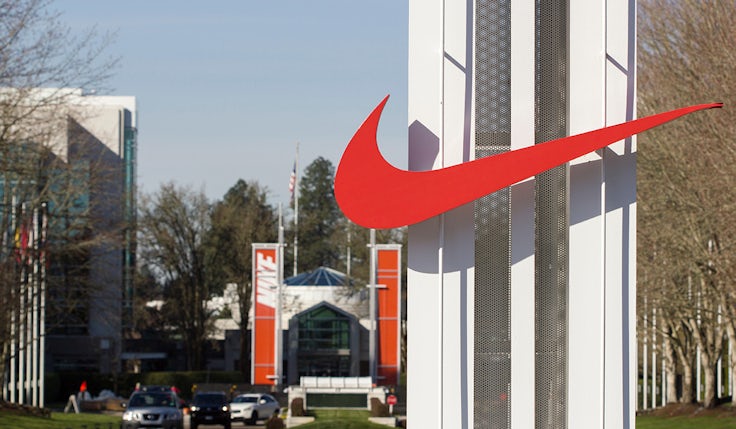
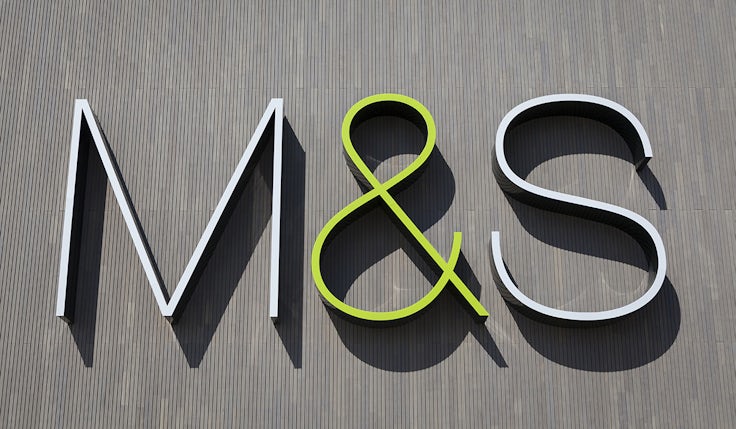 M&S to sell rival fashion brands for the first time
M&S to sell rival fashion brands for the first time
